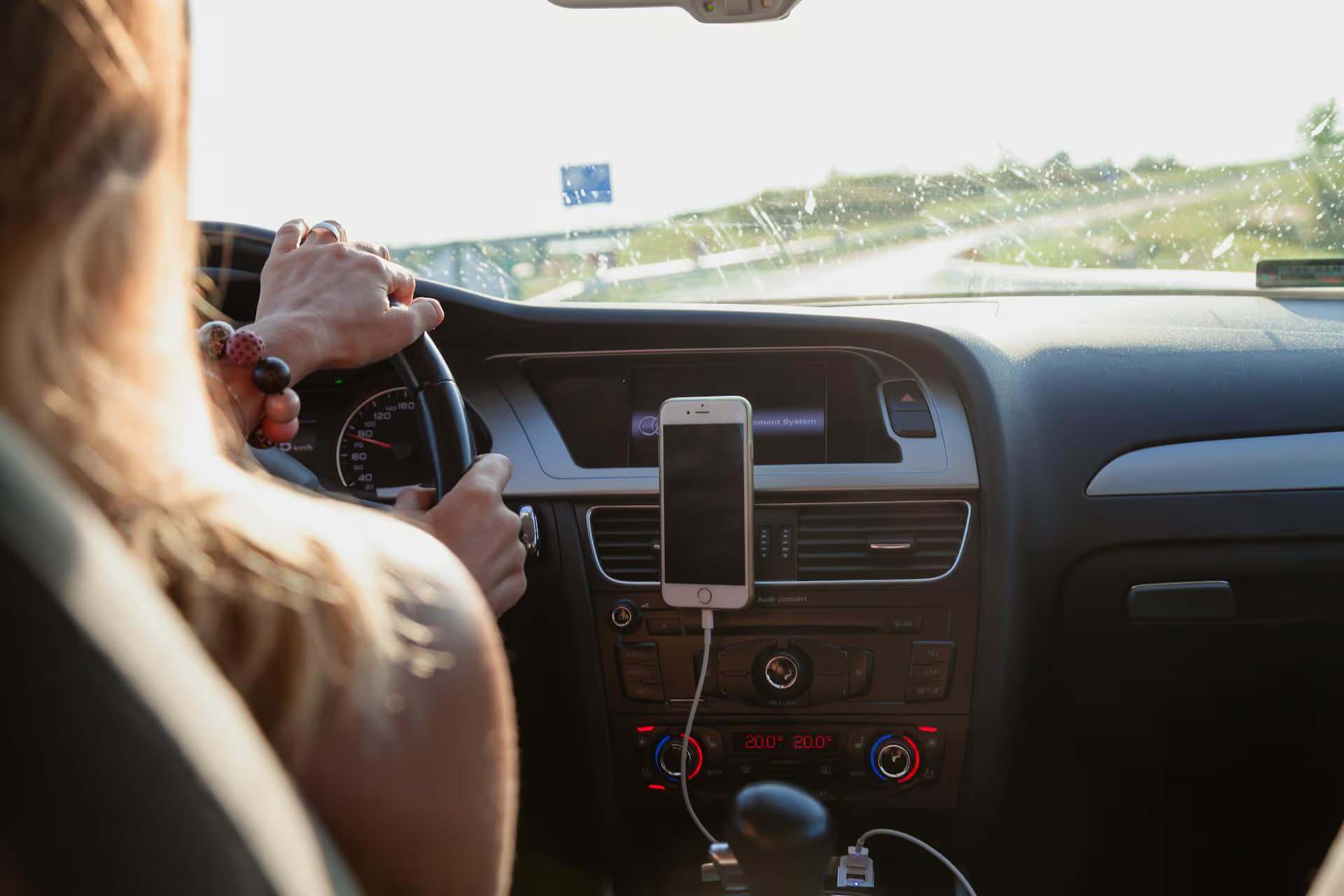在本综合指南中,我们将探讨如何获得自己的德国驾照。这将使您能够安全、合法地开始在德国驾驶。我们还将讨论从现有国家转入驾照的问题,让您享受简化的流程。在讨论过程之前,我们先来了解一下哪些人需要驾照,哪些驾照在德国可以使用一段时间。
谁需要德国驾驶执照?
在了解驾驶执照类型之前,有必要先了解一下哪些人需要德国驾驶执照。如果您来自欧盟或欧洲经济区(EEA)的其他国家,您通常可以在德国境内使用您的驾照直至到期。
但是,如果您持有摩托车驾驶执照或大型货车和公共汽车驾驶执照,则必须在取得德国驾驶执照后方可驾车。
如果您来自其他国家,您可以使用您本国的驾照,最长期限为 6 个月。之后,您需要获得新的德国驾照或将现有驾照转入德国,才能继续在德国驾驶。
德国提供的驾驶执照类型
与世界其他地区一样,德国也有多种类型的驾照。驾照的种类根据您驾驶的车辆类型和总重量而有所不同。以下是德国驾照的具体类别:
- B 类:轻型汽车驾驶执照,供载重量在 3,500 公斤以下的乘用车或机动车驾驶员使用。
- C1 级:重量在 3 500 千克至 7 500 千克之间的重型车辆牌照。
- C 级:重型车辆驾驶执照,专为驾驶 7,500 公斤以上车辆的驾驶员准备。
- A1 级:摩托车驾驶执照,适用于汽缸容量小于 125 毫升的摩托车。
- A2 级:摩托车驾驶执照,适用于功率小于 35 千瓦的摩托车。
- A 级:为驾驶功率大于 35 千瓦摩托车的人颁发的摩托车驾照。
- BE类:为驾驶拖车和客车的人颁发的驾驶执照。
- CE 级:重型车辆拖车驾驶执照。
- D 级:巴士司机驾驶执照。
- T 级:为驾驶农用和林业拖拉机的人员颁发的驾驶执照。
根据您驾驶或打算驾驶的车辆,您可以选择适合您情况的驾照。
申请德国驾照的资格要求
德国驾照的要求根据您打算获得的驾照类型而有所不同。例如,德国轻型车驾驶执照一般只适用于 18 岁以上的人。但是,每个类别的要求并不相同。
德国驾照的年龄要求
每个类别的主要要求之一是年龄:
- B 级和 BE 级:驾驶员必须年满 18 岁。
- C1 和 C 级:驾驶员必须年满 21 岁。
- A1 级:驾驶员必须年满 16 岁。
- A2 级:驾驶员必须年满 18 岁。
- A 级:驾驶员必须至少年满 24 岁,如果持有 A2 级驾照至少 2 年,则必须年满 20 岁。
- D1 和 D1E 级:驾驶员必须年满 21 岁。
- T 级:驾驶员必须年满 16 岁才能获得驾照
外国申请人的附加要求
在德国取得驾驶执照,除了要达到一定的年龄外,还必须满足其他一些条件。有志成为驾驶员的人必须是该国的合法居民,在某些情况下,还必须证明他们已在该国居住长达六个月。所有驾照还必须进行基本视力测试,包括对希望获得 C1、C 或 D 级驾照的人进行一般健康检查。
驾驶员也不得有任何重大交通违规行为或犯罪前科。德语不是必备条件,但强烈建议精通德语。这将有助于导航和在德国考取驾照所需的培训。
所有驾照还要求进行急救培训。因此,在准备驾驶执照申请之前,您必须确保自己已经完成这项培训。只要满足这些要求,您就可以申请德国驾照!
如何在德国申请驾驶执照

现在您已经达到了要求,是时候申请驾照了。您需要一些基本文件来满足开始培训的基本要求。以下是您需要的具体物品清单:
- 有效护照或身份证
- 居住证明(如租赁协议、水电费账单等)
- 两张护照照片
- 验光师出具的视力测试证明
- 急救课程证书
- 当地驾驶执照办公室提供的填写完整的申请表
准备好所有这些文件后,您就可以提交信息以供审批。获得批准后,您就可以开始强制性驾驶培训!
驾驶执照培训期间的注意事项
德国驾驶学校提供驾驶和理论课程。有些学校还提供英语课程。这些课程将帮助您了解德国的道路规则,使您能够安全、自信地出行。
您将了解各种标志的含义和德国交通法规。您还将了解在发生车祸时如何进行急救。
请注意,驾驶执照培训需要支付注册费、课程费和考试费。考取驾照至少需要 1500 欧元。特别是如果您所在的国家不允许您轻松地将现有驾照转为德国驾照。您可能还需要花更多的钱购买学习材料,但这一切都是值得的!
将外国驾照转为德国驾照
如果您来德国时已有驾照,则无需重新申领驾照。只要您所在的国家与德国有交换驾照的协议,您就可以很容易地将旧驾照换成新的德国驾照。与德国签有协议的国家包括以下国家:
- 欧盟和欧洲经济区国家
- 安道尔
- 澳大利亚
- 加拿大
- 海峡群岛
- 克罗地亚
- 法属波利尼西亚
- 马恩岛
- 以色列
- 日本
- 摩纳哥
- 纳米比亚
- 新喀里多尼亚
- 新西兰
- 圣马力诺
- 新加坡
- 南非
- 韩国
- 瑞士
- 美国(取决于您所在的州)
如果您来自上述任何一个国家,在德国申领驾照会更加简单,甚至费用更低。
许可证转让所需文件
在将现有驾照转为新的德国驾照时,您必须满足一些特定要求。您不仅必须达到申请德国驾照的年龄,还必须证明以下几点:
- 持有有效证件的德国现任和注册居民
- 与德国签有交换协议的国家的有效驾驶执照
- 之前获得许可证时并非德国居民
只要满足这三个简单的条件,您就可以申请将现有驾照转为德国驾照。在大多数情况下,您不需要在课堂上或路上接受进一步培训。不过,您还需要准备一些文件和证书。
准备许可证转让申请
如果您要申请除 C 级和 D 级以外的任何驾照,您需要提供有效护照或身份证、近期护照照片以及有效驾照原件。您还需要携带已完成急救课程的证明。此外,您还需要提供由验光师认可并实施的视力测试。如果您申请的是 C 级和 D 级驾照,您还需要一份额外的证书来证明您的体能和健康状况。
许可证转让费用和时间表
拿到这些文件后,您可以将它们带到当地的驾驶执照办公室(Führerscheinstelle)。之后,您需要等待批准。驾照转籍的平均费用为 200 欧元。因此,对于那些在本国接受过驾驶执照培训的人来说,这是一个更方便的选择。
请注意,在递交文件时,您同意交出旧执照以换取新执照。在大多数情况下,您需要两到六周的时间才能收到政府的批准回复。
更新或更换德国驾驶执照
恭喜您!现在您已经有了适当的证件,可以上路了,可以从一个地方到另一个地方去旅行了。在德国更新驾照非常简单,只需每十五年更新一次。只需携带您的驾照和一张近期的护照照片,并支付 24 欧元的小额费用,即可赴约更新驾照。
如果您丢失了驾照,请不要担心!您只需提供一封信,说明发生了什么事,并声明如果找到驾照,您会将其归还。如果驾照不幸被盗,您可以向德国警方报案。
您可以亲自到德国更换驾照。您需要提供解释信或失窃报告、护照等身份证件以及护照照片。
常见问题
查找有关在德国生活的常见问题的答案。
德国许可证为何如此昂贵?
高昂的费用来自驾校的必修课、考试费、体检费和培训材料费。德国的驾校有严格的管理规定,您必须参加的课程数量很快就会增加。如果从零开始学车,整个过程平均至少需要花费 1,500 到 2,000 欧元。
在德国考驾照难吗?
由于要求严格,许多人认为这一过程具有挑战性。理论考试内容详细,涉及德国交通法规、标志和安全。由于德国驾驶标准很高,因此实际操作考试的要求也很高。不过,只要在驾校接受适当的培训并做好准备,大多数申请人都能成功通过考试。只是需要时间、精力和金钱。
在德国考驾照的费用是多少?
总费用因您需要的课程数量和居住地而异。平均而言,您需要为 B 级(汽车)驾照支付 1,500 至 2,500 欧元。如果您已经有一个可以交换的外国驾照,那么费用会便宜很多,通常在 200 欧元至 400 欧元之间。
在德国考取驾照需要多长时间?
如果您申请的是全新驾照,通常需要 3-6 个月的时间来完成理论课程、驾驶课程和两次考试。具体时间取决于您上课的频率和通过考试的速度。如果是驾照转让,流程则更快,提交所有文件后通常需要 2 到 6 周。
如何在德国获得驾照?
如果您还没有驾照,则需要报名参加驾驶学校(Fahrschule)。培训过程包括课堂理论课、急救培训、视力检查和一系列实际驾驶课程。培训结束后,您将参加理论考试和实际驾驶考试。平均而言,整个过程需要花费 1,500 欧元或更多,而且可能需要几个月的时间,这取决于您是否有时间以及您通过这两项考试的速度。
如何转换德国驾驶执照?
要将您的外国驾照转换成德国驾照,您需要向 Führerscheinstelle(当地驾照办公室)提出申请。有互惠协定的国家(如美国、加拿大、澳大利亚、日本、韩国)允许简化换证手续,无需进行全面驾驶考试。您需要提供护照、居住证明、驾照原件、视力测试证书和急救课程证明等文件。这一过程通常需要花费约 200 欧元,耗时 2 到 6 周。
外国人可以在德国开车吗?
是的,外国人可以在德国开车。如果您来自欧盟或欧洲经济区,您本国的驾照在过期前一直有效。如果您来自欧盟/欧洲经济区以外的国家,您可以在抵达德国后的六个月内使用外国驾照。之后,您需要申请德国驾照或将现有驾照转入德国,具体取决于您的原籍国。
持有外国驾照可以在德国开车吗?
可以,但有效期有限。欧盟/欧洲经济区的驾照在过期前一直有效,但非欧盟/欧洲经济区的驾照在迁入德国后只有六个月的有效期。之后,您需要转让或更换驾照。有些国家允许直接更换,而有些国家则需要额外的测试。
获取签证就绪套餐
通过我们为您量身定制的一体化签证解决方案,开始您的德国之旅。
关于在德国生活的更多信息
从季节性天气模式到节日传统--您需要了解的有关德国生活的一切信息





